Key Takeaways
- Ants bite mainly for defense and territorial reasons.
- Bite severity depends on the ant species.
- Seal entry points and clean to prevent infestations and bites.
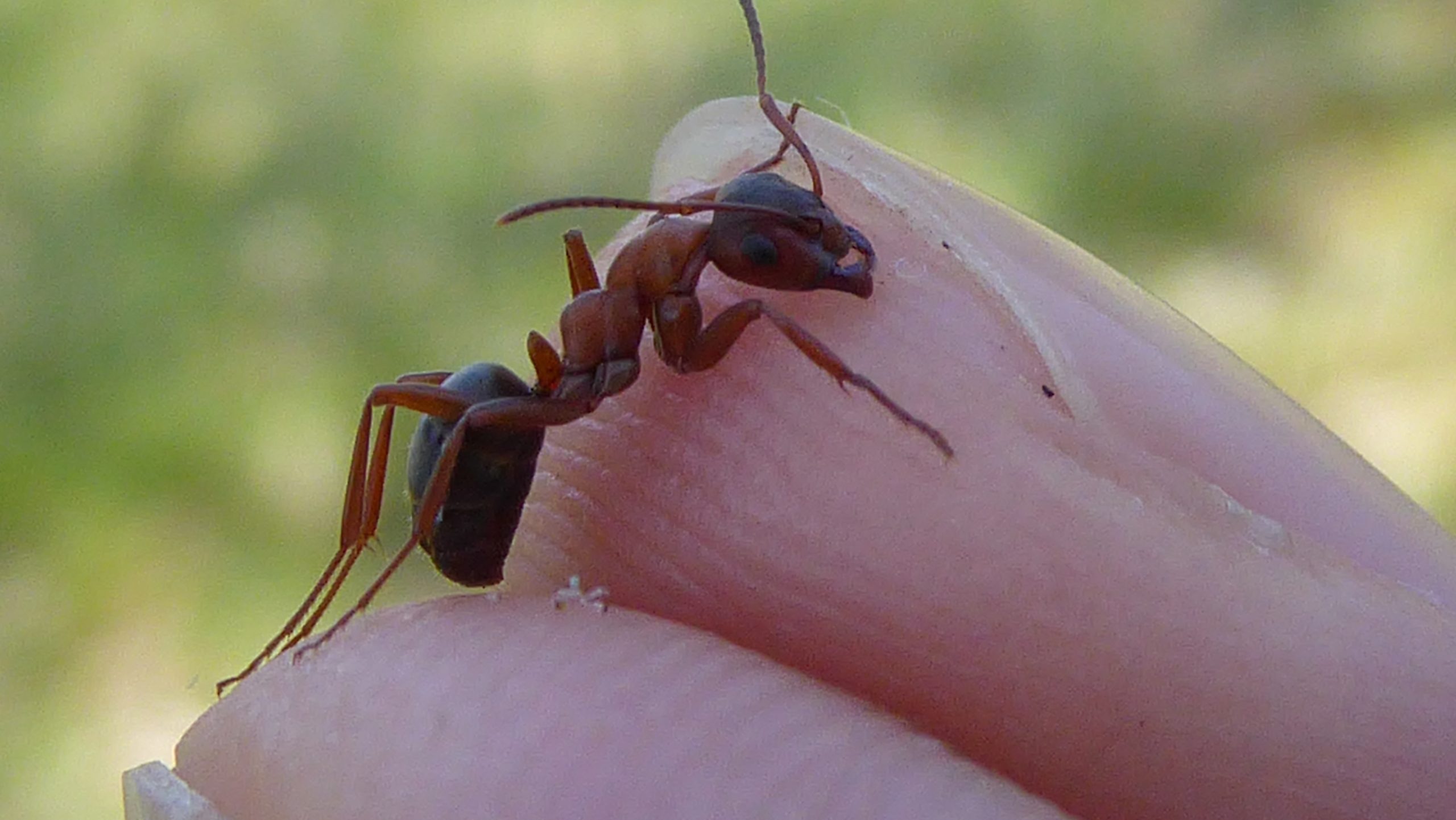 Despite their small size, ants can deliver surprisingly painful bites and stings, often leaving us wondering why these tiny creatures show such aggression. Understanding the reasons behind ant bites helps manage encounters and reduce the risk of painful interactions.
Why do ants bite? Is it a mere nuisance or a calculated act of aggression? This article explores the causes of ant aggression, their biting behavior, and how to protect yourself from these tiny attackers.
Despite their small size, ants can deliver surprisingly painful bites and stings, often leaving us wondering why these tiny creatures show such aggression. Understanding the reasons behind ant bites helps manage encounters and reduce the risk of painful interactions.
Why do ants bite? Is it a mere nuisance or a calculated act of aggression? This article explores the causes of ant aggression, their biting behavior, and how to protect yourself from these tiny attackers.
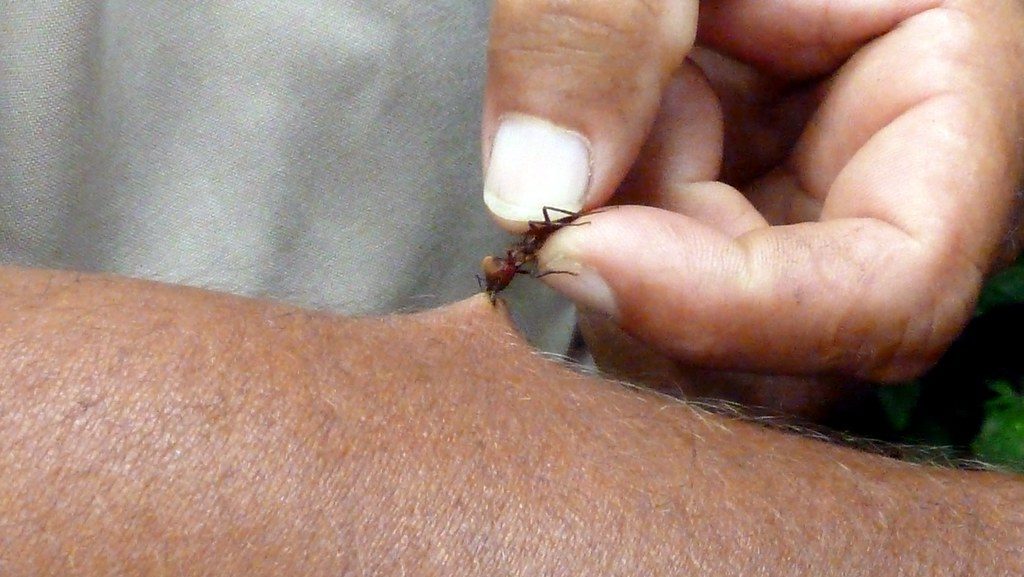

Not getting a solution?
Get your free pest control estimate today!Why Do Ants Bite?
Ant bites serve as a primary defense mechanism. When ants feel threatened or need to protect their colony, they bite to scare away intruders. Below are some major reasons why ants bite:Reasons Why Ants Bite
-
Self-Defense: Ants bite when they feel threatened, often in response to nest disturbances or proximity to food sources.
-
Colony Protection: Biting is a primary defense mechanism to safeguard the colony from predators or intruders.
-
Guarding Resources: Ants are territorial and bite to protect their food sources from competitors.
-
Communication: Some ants bite to release pheromones, signaling the colony to defend against potential threats.
Does Ant Aggression Differs From Species to Species?
Ant species show varying levels of aggression, influencing how and why they bite. Fire ants are infamous for their aggressive nature, biting their target to latch on before delivering a painful sting that injects venom. This venom causes intense pain, swelling, and in some cases, severe allergic reactions. Carpenter ants, on the other hand, rely on their strong jaws to deliver painful bites. Though not venomous, they spray formic acid into the wound, leading to additional irritation. Bullet ants are renowned for having one of the most painful bites in the insect world, using their powerful jaws to fiercely defend their nests. In contrast, sugar ants are much less aggressive and rarely bite humans, focusing primarily on scavenging for food. Argentine ants, while highly territorial and known for biting rival ant species during turf wars, seldom bite humans unless provoked.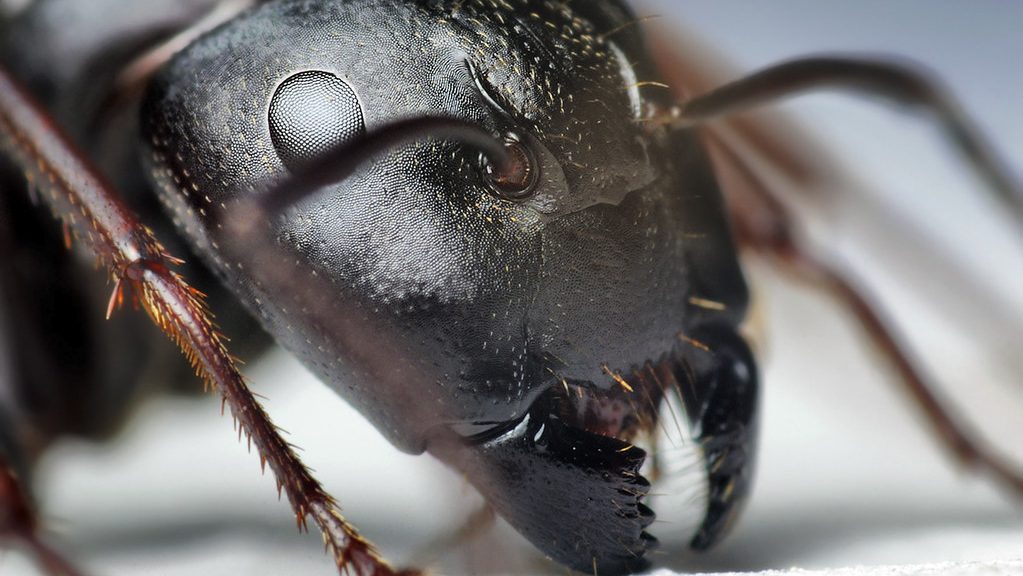
When and Why Ants Bite Humans?
Ants bite humans as a defensive response when they perceive a threat to their environment or survival. While most ant species are not inherently aggressive, certain situations can provoke biting behavior.Common Triggers for Ant Bites
-
Disturbing Nests: Accidentally stepping on or disturbing an ant mound can provoke defensive biting. Worker ants quickly mobilize to protect their colony from perceived intruders.
-
Foraging for Food: Ants often invade homes searching for food, especially sugary or greasy items. If they feel cornered or threatened during foraging, they may bite in self-defense.
-
Perceived Threats: Simple actions, such as a hand near an ant trail or sudden movement close to them, can be seen as a threat, prompting ants to bite to protect themselves or their food sources.
-
Predator Defense: Some ant species bite humans to defend themselves against perceived predators. This response is especially common in aggressive species like fire ants or bullet ants.
-
Territorial Aggression: In situations where ants encounter rival colonies or even humans near their territory, biting can serve as a warning and deterrent.
What to Do If You Get Bitten?
If you do get bitten by an ant, it’s important to know how to treat the bite to reduce discomfort and prevent complications. Take a look at the step-by-step guide to manage ant bite.Steps to Treat Ant Bites
-
Clean the Area: Wash the affected region with soap to reduce the risk of infection.
-
Apply a Cold Compress: Use a cold pack or a clean cloth with ice to minimize swelling and relieve pain.
-
Use Topical Treatments: To reduce itching and inflammation, use over-the-counter creams, such as antihistamines or hydrocortisone.
-
Monitor Symptoms: Watch for signs of a severe reaction, such as increased swelling, redness, or worsening pain.
-
Seek Medical Attention: In case you experience difficulty breathing, swelling in face or throat, or other allergic symptoms, seek emergency medical care immediately.
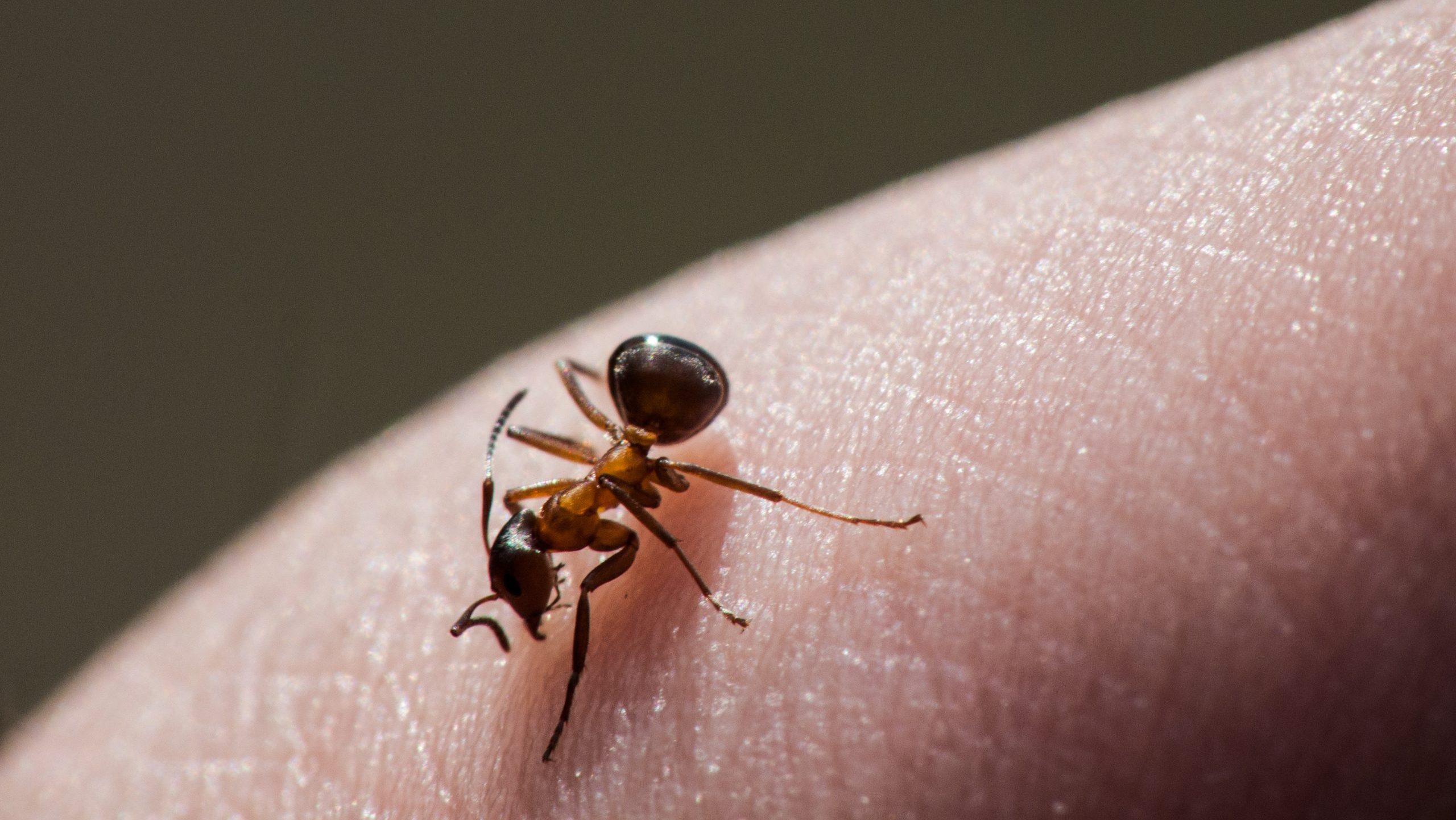
How Do Ant Bites Affect Human Health?
Ant bites typically cause mild symptoms like redness, itching, minor swelling, and discomfort, which usually gets better within a few hours without medical attention. Certain species, like fire ants and bullet ants, can inflict severe bites, causing intense pain, swelling, and allergic reactions such as hives, dizziness, or anaphylaxis, which require immediate medical care.How to Prevent Ant Bites?
Preventing ant bites begins with taking proactive steps to reduce encounters with aggressive ants. Below are some effective prevention tips to help protect your home and avoid unnecessary bites.Tips to Prevent Ant Bites
-
Avoid ant mounds and trails, and address indoor infestations promptly to prevent bites.
-
Seal cracks, gaps, and openings around windows, doors, and walls to block ant entry.
-
Keep food in sealed boxes or containers and clean up crumbs and spills as soon as possible.
-
Wear protective clothing like closed-toe shoes, long pants, and gloves in areas with high ant activity.
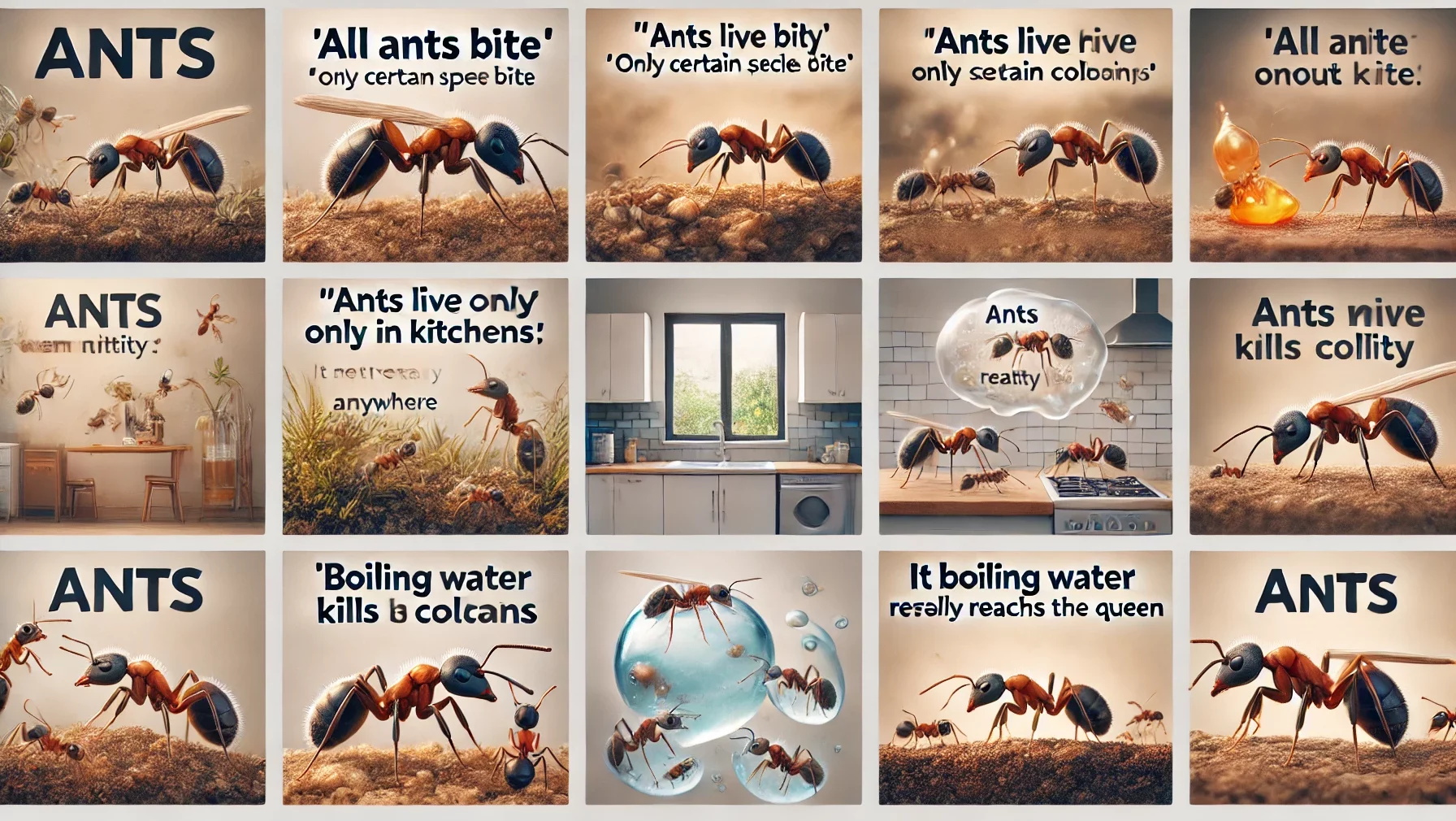
Myths and Facts About Ant Bites
There are many misconceptions about ant bites, from misunderstandings about their behavior to exaggerated fears about the dangers they pose. Below, we debunk some common myths and present the facts about ant bites to help you better understand these tiny creatures and their behavior.| Myth | Fact |
|---|---|
| All ants bite and sting. | Not all ants have stingers. While many can bite, only certain species, such as fire ants and bullet ants, possess both biting and stinging abilities. |
| Ants bite humans for food. | Ants primarily bite as a form of defense, not for feeding. They use their bites to protect the colony from perceived threats. |
| All ant bites are dangerous. | While some ant bites and stings can be painful or cause allergic reactions, most bites are harmless and only cause minor irritation. |
| Ants are aggressive without provocation. | Ants typically bite only in response to threats or disturbances to their colony. They usually show aggression only when they feel their nest is endangered. |
| All ant species have the same level of aggression. | Aggression levels vary by species. Fire ants are highly aggressive with painful stings, while species like sugar ants are less aggressive and mainly seek food. |





